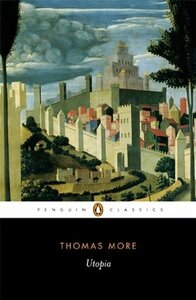Take a photo of a barcode or cover
informative
reflective
slow-paced
Plot or Character Driven:
Plot
Strong character development:
No
Loveable characters:
No
Diverse cast of characters:
No
Flaws of characters a main focus:
No
I had to read this for uni
informative
inspiring
reflective
fast-paced
Plot or Character Driven:
N/A
Strong character development:
N/A
Loveable characters:
N/A
Diverse cast of characters:
N/A
Flaws of characters a main focus:
N/A
Book 1: 2 Stars
Book 2: 4 Stars
*This society is almost perfect. Other than the sexual repression, the patriarchy, slavery, and control, and even the seemingly lack of arts, I dunno if I wanna live here. However, I do agree that money is bad.
Book 2: 4 Stars
*This society is almost perfect. Other than the sexual repression, the patriarchy, slavery, and control, and even the seemingly lack of arts, I dunno if I wanna live here. However, I do agree that money is bad.
I finally finished this. Not an essay read considering it was written back in 1516. Some religion, communism, socialism, humanistic, and the rotation of jobs where no one has control? The best part of the book are the commentaries at the end.
informative
reflective
slow-paced
Plot or Character Driven:
N/A
Strong character development:
No
Loveable characters:
N/A
Diverse cast of characters:
No
Flaws of characters a main focus:
Complicated
informative
slow-paced
Plot or Character Driven:
N/A
Strong character development:
N/A
Loveable characters:
N/A
Diverse cast of characters:
N/A
Flaws of characters a main focus:
No
Has a few interesting ideas, but mostly sucked the joy out of me
slow-paced
Honestly really enjoyed this one. It was a bit of a hard read because the language is old and dense, and I kept reading it in short spans of time which required periods of acclimatisation every time I came back to it which was a little annoying. I enjoyed book one far more than I expected to, I came in basically just waiting for book two, but the discussions in one were very interesting, kinda taps into the ideas I always end up thinking about on effecting the world from inside vs outside the system, really interesting discussions of responsibility to the state and those around you, with really good insight into the state of the state at the time. Book two was ofc great, loved the utopia fiction, the image of them was painted really well, I especially loved the discussions of pleasure and the role of it within society. The only thing I would've liked more discussion on might have been the culture/art that they've created as a society, but otherwise a really compelling society was created (i enjoyed the chapter on war far more than i expected). There's also the lysistrata element to the story where while the world More creates may seem relatively moral/desirable, does he also believe that? It's an open question but just when put into the context of his biography takes on lots of interesting implications. A couple points of beef with utopia: lack of individualism isn't super nice, like being forced to wear all the exact same outfit not great, also they feel a bit stuck up? Believing that their way of living is so great and all living well and everything, but not making a huge effort to pass that to the surrounding commonwealths, not great :/. I absolutely loved how much philosophy there was in this, especially interesting to spot ideas of philosophers that were to come after More already contained in the text (likely due to the influence of the classical philosophers on both)
challenging
funny
informative
reflective
slow-paced
Plot or Character Driven:
N/A
Strong character development:
N/A
Loveable characters:
N/A
Diverse cast of characters:
No
Flaws of characters a main focus:
No
Making the obvious allowances for the time this was written in, it was interesting and often humorous. While clearly being well ahead of it's time, it's still unmistakably written by a man with a place of privilege in his society.
More than 500 years seems like such a long time, it's upsetting to consider how many of the issues addressed are still relevant today.
More than 500 years seems like such a long time, it's upsetting to consider how many of the issues addressed are still relevant today.






